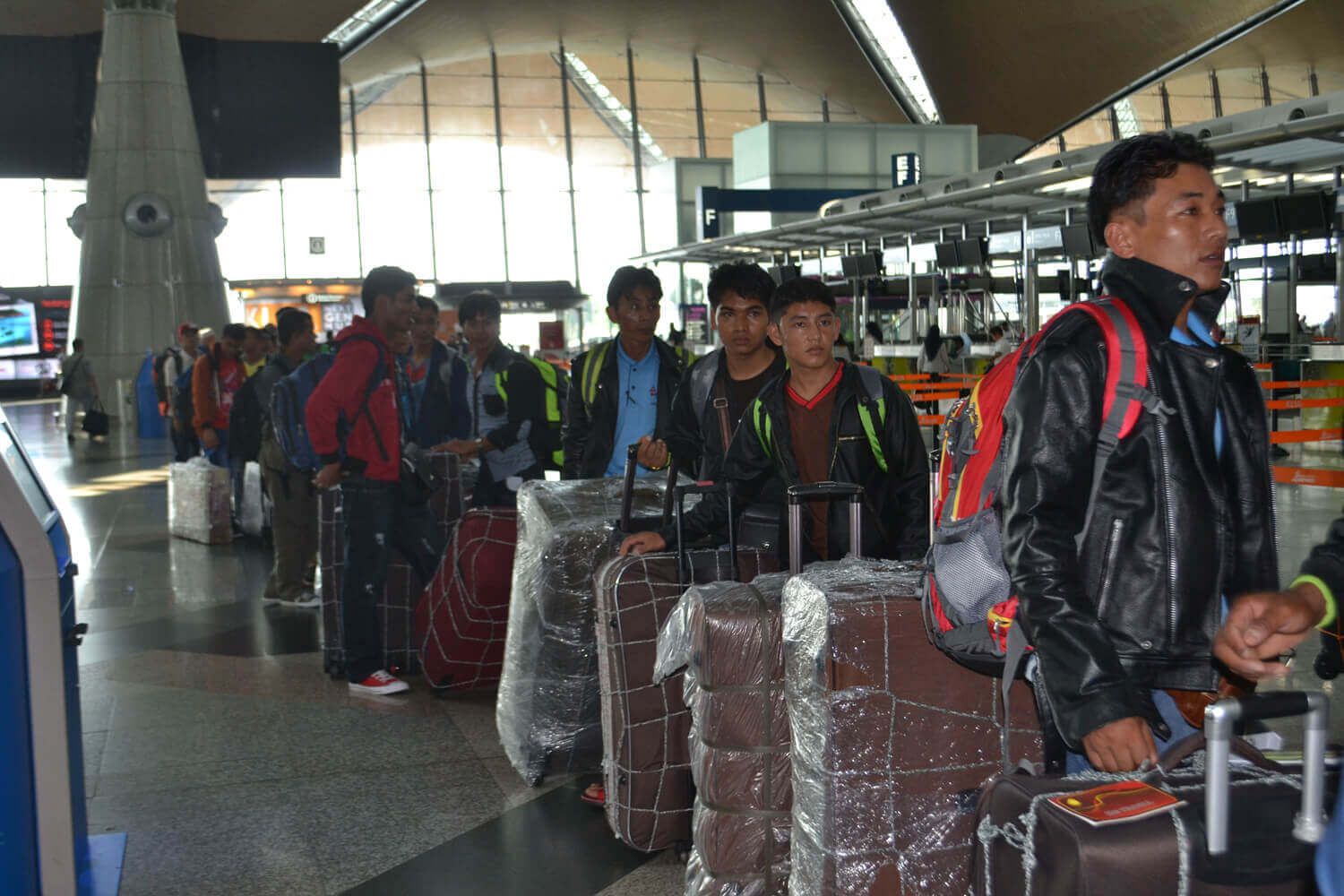The lottery of migration

All but forgotten in this week’s celebration of International Workers’ Day on 1 May were the approximately 4.5 million Nepalis working outside Nepal at any given time. Also largely ignored were the unsalaried drudgery of domestic work, mainly by women, the labour of subsistence farmers, and childhood work.
Labour Day was formulated mainly to protect factory workers, and was inspired by early-20th century unionism in the West. We need to redefine May First to be more relevant to our times and climes.
Read also: Homes away from home, Upasana Khadka
The chief villain in this year’s May Day rallies (probably because it coincided with the 200th birthday of Karl Marx) were rapacious and exploitative capitalists profiting from the sweat and tears of under-paid and over-worked proletariat. To be sure, Marx’s Labour Theory of Value has inspired activism that has improved conditions for workers across the world. In Nepal itself, forms of bonded slavery were legally abolished 25 years ago.
Even so, a lot more needs to be done in our part of the world to guarantee not just the right to gainful employment within one’s country, but also the right to at least a minimum wage, basic conditions, and protection for those in the formal sector.
What if, however, the chief villains are not capitalist monopolists over the means of production who expropriate Marx’s ‘surplus value’ from workers, but the state itself? That is the case in Nepal where successive elected rulers since 1990 have masked their failure to create jobs within the country by taking the easy way out to export labour.
Read also: Nepal's #1 Export: People, Editorial
That much would still have been all right. After all, there are countries that have regulated overseas employment, removed middlemen, and maximised the contribution of remittances by investing it in productive sectors to generate employment back home – thereby removing the need for the next generation to migrate abroad for work.
In Nepal’s case, a rent-seeking state with its corrupt bureaucracy has actively promoted foreign employment so as to enrich itself by creating hurdles every step of the way for those desperate for work abroad. Nepali labour migrants have to pay fees and bribes at every door in their own country even before they arrive at the host country to be exploited or cheated by employers.
Politicians who are supposed to ensure the welfare of citizens are involved in this protection racket. Ministers of Labour in the past have been shadow partners in recruitment companies, most of our diplomats in the Gulf are involved in one way or other in the labour racket. Nepalis are heavily indebted to middlemen even before they fly out of Kathmandu Airport and spend the next few years working in slave-like conditions just to pay back the loans they took. The savings they send home is mostly spent on food and education for their children. Nepal may have reaped $6.5 billion from overseas remittances last year, but most of it went right out to pay for imports – mostly of petroleum products and consumer goods.
The state is unable to take even the most basic steps to ensure the safety of our overseas workers. Horrific high-profile cases of abuse of female housemaids in Kuwait prompted the government to over-react with a blanket ban on female domestic workers in the Gulf two years ago. The push factor, however, is so strong that women found ways to fly out via Delhi or Mumbai by bribing immigration, police and the foreign employment bureaucracy through ‘setting’. Any ad hoc ban, new rules, regulations imposed without warning end up fattening up the people who are responsible for enforcing them.
Most of the above is documented in recent issues of this paper in investigative pieces by Upasana Khadka from Beirut, Kuala Lumpur, Doha and Dubai. What emerges is a clear pattern of recruitment agencies, the bureaucracy, immigration and police enjoying political protection to take advantage of the desperation of poor Nepali men and women.
Thousands of Nepali housemaids have been stuck for over two years in Lebanon and other West Asia countries because they went there before the ban on female workers, and cannot visit families back in Nepal because of the fear that they cannot travel back to their well-paying jobs. However, some workers who are willing and have the connections to pay for ‘setting’ at Kathmandu Airport have been able to visit their children and return to Lebanon.
Nepali overseas contract workers from Nepal go to great lengths to make a down payment to find work abroad even though they know the inherent risks of being cheated, provided fake visas, or the danger of not being able to earn what was promised. The first step is to make migration safe, the second step is to ensure fair earnings, the third long-term goal should be to create jobs at home.
Writes Khadka: ‘Current migration policies … help make foreign employment more like a lottery than a pathway out of poverty.’
Read also:
Caught in the middle by middlemen, Upasana Khadka
Belabouring the obvious, Editorial




